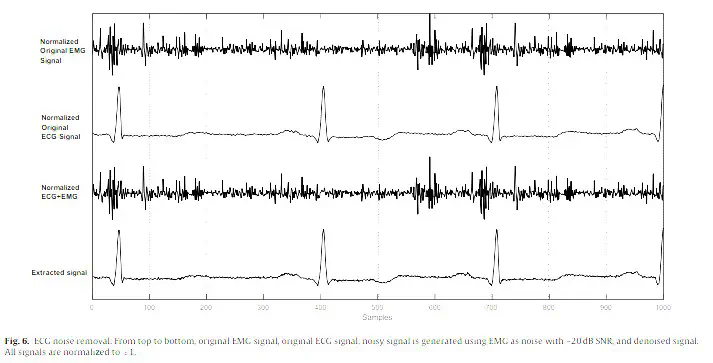Single channel high noise level ECG deconvolution using optimized blind adaptive filtering and fixed-point convolution kernel compensation
 Image credit: BSPC
Image credit: BSPC
Abstract
An electrocardiogram (ECG) is used to record the electrical activity of the heart. However, ECG signals are susceptible to the noise from various sources which increases the probability of misinterpretation and can affect the diagnostic process. Traditional noise cancellation techniques, which uses finite and deterministic coefficient, are not efficient, since the ECG signals are non-stationary. Thus, adaptive filters are commonly utilized on such signal as they can adjust their coefficient according to the changing nature of non-stationary signal. Adaptive algorithms still have a disadvantage that they require the model of noise or desired signal. In this paper, a novel algorithm is introduced based on fixed-point convolution kernel compensation for finding a model for using an adaptive filter. Then a recursive least square method is used for completing steps of deconvolution of the ECG signal. The deconvolution method can be used for denoising ECG signals in very low signal to noise ratio circumstances and also can be used in blind source separation applications such as separation of fetal ECG from maternal ECG. ECG signals were utilized in this study are taken from the MIT-BIH Arrhythmia database for showing the performance of the algorithm on denoising applications. The results demonstrate that the proposed algorithm renders a much-improved performance in removing the noise from ECG signals, especially in a scenario where signal to noise ratio is negative. Moreover, the noninvasive fetal ECG dataset (NI-FECG) provided by Physionet is also used for fetal ECG extraction by a single thoracic channel.